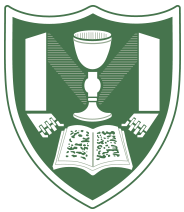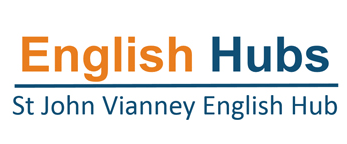
Why is Oracy important to us at St John Vianney?
Oracy is the golden thread that weaves together all teaching and learning across the curriculum. Oracy enables children to express their thoughts, feelings, understanding and ideas fluently. It also helps them to clarify their thinking and to understand new concepts. As such, talk is essential to children’s thinking and learning and to their productive engagement in classroom life, especially in the early and primary years. We believe spoken language to be fundamental to the achievement of our children.
Through a high quality oracy education our children learn through talk and to talk. This is when they develop and deepen their subject knowledge and understanding through talk in the classroom, which has been planned, designed, modelled, scaffolded and structured to enable them to learn the skills needed to talk effectively.
What research tells us?
On April 28 2021, the APPG published its final report from the Speak for Change Inquiry which highlights the significant impact of the pandemic on the already marked spoken ‘language gap’ between disadvantaged students and their peers.
The report highlights the many benefits of oracy education and the detrimental impacts of a lack of provision for those that need it most. The stark evidence presented on the impact of the Covid-19 pandemic on spoken language serves to strengthen the need to act now. Whilst the fantastic case studies from schools across the UK illuminate the difference a sustained and comprehensive focus on oracy education can make to the lives of children and young people.

Intent
Oracy is the golden thread that weaves together all teaching and learning across the curriculum. Oracy enables children to express their thoughts, feelings, understanding and ideas fluently. It also helps them to clarify their thinking and to understand new concepts. As such, talk is essential to children’s thinking and learning and to their productive engagement in classroom life, especially in the early and primary years. We believe spoken language to be fundamental to the achievement of our children.
We believe:
- Oracy is the capacity to use speech to express our thoughts and communicate with others as outlined in the four strands of the Oracy Framework
- Teaching improves Oracy and Oracy improves teaching and learning
- Effective Oracy teaching and learning is purposeful, scaffolded and structured to deepen understanding and develop critical thinking
- Children and young people should become agile communicators who learn to navigate the expectations for Oracy in different contexts through the provision of a wide and varied curriculum
- Oracy is the responsibility of every teacher and the entitlement of every child.
Implementation
At St John Vianney Primary School, Oracy is entwined into all areas of school life and the whole curriculum as speaking is at the heart of learning in all subjects. Oracy is driven by ‘Oracy Champions’ Mrs Bancroft and Ms Osborne who strive to implement Voice 21’s systematic of teaching Oracy: The Four Strands.
We use this Oracy framework to understand the physical, linguistic, cognitive and social and emotional skills that enable successful discussion, inspiring speech and effective communication. Throughout the school, we plan ‘talk’ for a range of purposes, consider its structure, implement necessary scaffolds, and reflect throughout the process. We believe that it is important to provide opportunities for talk that are both exploratory and presentational in nature. Discussion guidelines are created by each class and are displayed, rehearsed and referenced to at the beginning and during all discussions. Their guidelines reinforce the equal importance of both speaking and listening, as well as reinforce the stands of the framework. We believe that reflection upon talk is important in the development of metacognition. Talking roles are also given to improve the quality of exploratory talk. These roles include the instigator, builder, challenger, clarifier, prober and summariser. STEM sentences for these roles are explicitly taught to children starting in KS1 in to support their oracy skills and allow them to engage in quality discussions to deepen their learning. Assessment plays a key role in the development of Oracy. Both formative and summative assessments are used to track and ensure the progress of all pupils.
Impact
The impact of this policy will be monitored through the progress and achievement of all children by class teacher and support staff.
Oracy skills are assessed against the Voice 21 Framework, including school and teacher benchmarks. The framework is used across all year groups and is used to give students a reason to talk, knowledge to talk like an expert, use vocabulary like an expert and to give them platforms for purposeful talk.
Impact will also be seen in the development of extended writing because, at St John Vianney Catholic School, we believe oral skills are essential to develop written skills as ‘if you can’t say it, you can’t write it!’
The Oracy Champions, Senior Leaders and Governors will be responsible for monitoring the impact of the policy and implementation of the oracy framework across the school, through learning walks, planning scrutiny, coaching, lesson observations and any other relevant monitoring activities.
It is the responsibility of every class teacher to ensure the policy is adhered to
Oracy Policy

#SJVRA #SJVOracy Our snack time shop! ???????????????? pic.twitter.com/2VjdGwLTiV
— St John Vianney (@sjvblackpool) April 26, 2023



